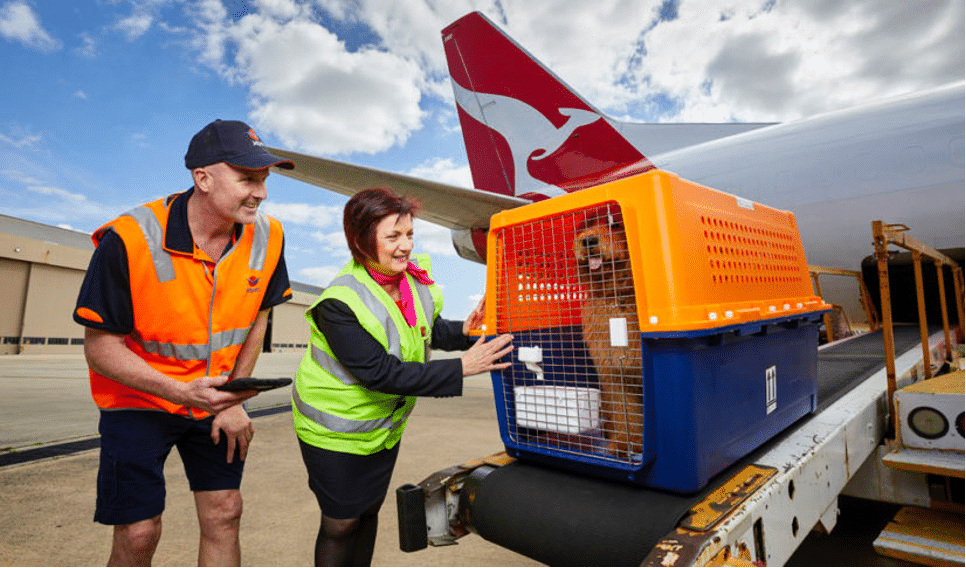Moving your pet abroad? This can be a daunting and stressful task. There are so many companies that offer interstate pet transportation services and international services, it is quite a comparison that needs to be made to ensure you choose the right one.
Also, travel crates need to adhere to certain rules and requirements set out by authorities overseeing interstate pet transport or international travel of animals. So, it’s vital to do your homework on the topic before purchasing a travel crate.
In addition to crates and companies, there are many ways you can make travelling easier for your pet and yourself, which you’ll find in this article.
The Do’s and Don’ts of Pet Transportation
Hundreds of pets travel abroad yearly, and although the occurrence of problems is extremely low, it is not impossible. Whether you require dog or cat transport services, it should not be taken lightly. Here are some dos and don’ts of pet transportation:
- Do always talk to your vet about the health and safety of your pet. In addition to ensuring they are healthy enough to travel, you’ll need vaccines and paperwork to prove it, which can be a lengthy procedure.
- Do your research about travelling abroad, by reading blogs and testimonials so you can prepare yourself mentally and practically. Keep in mind, however, that not everything you read will be accurate, but it will give you a better understanding of what to expect. The best would be to have a chat with someone close to you who has done this before, to get first-hand advice on how to make it easier.
- Do work with a recognised and trusted pet transport company, to give you peace of mind all the way. Acquiring the services of a professional company will not only make it easier, but they will have all the necessary information to guide you during this journey and are likely to take some tasks off your hands. Have a chat with one of the consultants and read online reviews to help you choose the best company.
- One last thing you need to do is get your pet acclimated to the travel crate. Travelling with a pet that’s not used to crates means you have a scared animal during the journey. Rather get them used to the space and its smell beforehand.
- Don’t sedate your pet prior to travelling, especially air travelling. Reputable pet transport companies will not accept animals that have been sedated unless it would be more detrimental for the animal to travel without sedation. Although you might think sedation is what’s best for your animal to keep them relaxed while travelling, it puts them at a disadvantage. Being at high altitudes can cause respiratory and cardiac issues when under sedation. Reduced muscle control will also affect their balance, which can be a safety hazard. Lastly, it affects their minds, making them more fearful and confused, not less, as you are hoping for.
- Don’t make any assumptions about a company’s rules or requirements, or a country’s regulations. Any wrongful assumptions can cause major delays or even a cancellation of your pet’s flight.
Do I Need a CVI to Transport My Pet Abroad?
A CVI (Certificate of Veterinary Inspection) is an official document that serves to confirm that your pet is fit to travel. Animals should be healthy enough to travel or it should be clear what special care is required if there are conditions that need to be treated.
A CVI is issued by an accredited veterinarian and such services are usually only available by appointment. Time management is crucial here, to ensure you have all the necessary documentation available before the journey is supposed to start.
Some required vaccinations cannot be given too long before departure. Therefore, make sure you have your vet appointments scheduled to suit the journey’s timeline, and that you keep to appointment times.
Do I Need Pet Travel Insurance?
Vet bills tend to be unexpected and expensive. Although your pet’s health is of utmost importance, you can’t predict when your pet will fall ill or get injured. Having pet insurance will help you be prepared for most scenarios. This is especially important for travelling purposes as each dog reacts differently to the motion of flying.
Although it’s not a legal requirement to have pet insurance, it can help you save money if something goes wrong. It is worthwhile comparing various insurance policies from different companies and choosing the one that best suits your requirements.
Final Thoughts
Having read this article means you’ve already decided to take your pet abroad. Although the next few months might be challenging, it will surely be worth starting this new chapter in your life with your loyal friend by your side.
It is important to remember that you’re not alone and that there are numerous reputable companies that would be more than willing to assist. Do your research and choose the company that best suits your needs to give your pet the best travelling experience possible.
